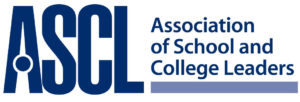Although CPRT has now closed, some of its initiatives have continued. One such is the joint CPRT/University of York Dialogic Teaching Project, funded 2014-17 by the Education Endowment Foundation (EEF). The independent evaluation report on this project is published today and it confirms that high quality classroom talk not only engages and motivates children but also raises their standards of attainment.
In a randomised control trial of Dialogic Teaching – a distinctive approach pioneered by Robin Alexander that formed the basis for earlier projects in Barking and Dagenham, Bolton and North Yorkshire – teachers from schools in Birmingham, Bradford and Leeds have been working to maximise the power of classroom talk to increase pupils’ engagement, learning and attainment.
The trial, a joint project of Cambridge Primary Review Trust and the University of York, took place in 76 primary schools with higher than average proportions of disadvantaged Y5 pupils. It involved professional training and structured print materials, with peer mentoring and video to support teachers’ planning and self-evaluation. The intervention lasted 20 weeks spread over two terms.
The intervention was subject to an independent evaluation by a team from Sheffield Hallam University. Here are the headline findings from their report for the Education Endowment Foundation, published on 7 July 2017:
Using standardised tests, the independent evaluation found that after just 20 weeks the 2,493 Year 5 pupils (nine and 10 year olds) who received the intervention made, on average, two months’ more progress in English and science than a similar group of pupils who did not receive the intervention. The intervention also boosted mathematics results by two months for pupils qualifying for free school meals (a standard poverty measure) and one month overall. Participating teachers, interviewed as part of a linked process evaluation, were highly supportive of the approach while acknowledging its challenges.
These findings are of considerable significance, not least for CPRT, since among the recommendations of the final report of the Cambridge Primary Review was this:
We do not nominate any ‘best buys’ from recent pedagogical research, and indeed would strongly discourage the chasing of pedagogical fads and fashions. At the same time, we note the extent to which research from many sources converges on language, and especially spoken language, as one of the keys to cognitive development, learning and successful teaching, and indeed to the learner’s later employment and democratic engagement. Yet in many classrooms … talk remains far from achieving its true potential. We urge all concerned, especially teachers and researchers, to effect the pedagogical transformation which is needed, and which in some schools and local authorities has already begun. (Children, their World, their Education, p 496).
In the University of York press release to mark the EEF evaluation report’s publication, Robin Alexander comments:
We have known for many years that talk is necessary for the development of children’s thinking, learning and understanding, as well as for their capacity to communicate. This is demonstrated by this independent trial, which after a talk-intensive intervention programme of only 20 weeks found pupils making test score gains of two months over their control group peers. These results chime with similar projects in the UK and USA and must finally force sceptics to accept that oracy is vital not only in its own right but also for learning and attainment across the entire curriculum. No longer can talk be regarded as incidental, still less as something that gets in the way of reading and writing, though we stress that what matters is not the quantity of talk but its qualities of reciprocity and cognitive challenge. The fact that children on free school meals did so well underlines its particular importance in contexts of social disadvantage. The results also confirm that good teaching really does make a difference and that evidence-informed professional development raises standards.
We hope others will now join us in striving for that vital ‘pedagogical transformation’ in the realm of classroom talk advocated in 2009 by the Cambridge Primary Review. As we say in our letter of thanks to the schools that participated in our project:
The project gives a clear go-ahead to schools that are keen to focus on improving talk for teaching and learning but wonder whether in the context of the drive to raise standards they dare devote time to it. They can and must, for talk itself raises standards: it’s official, and our project shows how it can be done.
Click here to discover more about the CPRT/UoY project on dialogic teaching, and to link to the EEF evaluation report and the CPRT/UoY project’s internal report.
Robin Alexander is now working on a new publication, successor to his well known ‘Towards Dialogic Teaching’, which will combine some of the latter with material developed for the successful EEF trial reported above. It will published in 2018 by Routledge.




